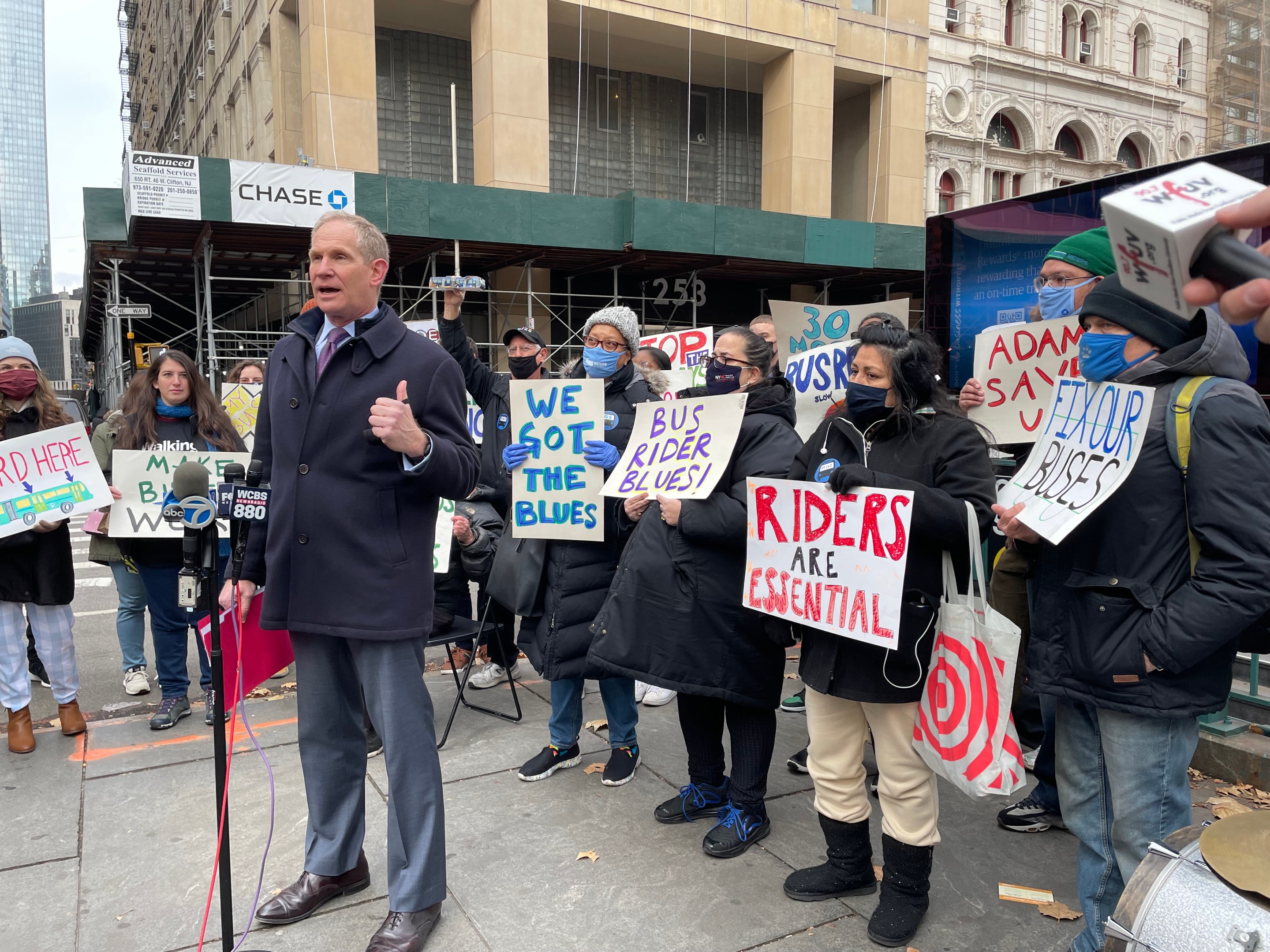
Could this finally kickstart a discussion of free transit?
MTA Chairman and CEO Janno Lieber said on Wednesday that he and other MTA officials are asking state officials to fund transit the way they fund other essential services like police and fire.
"We're starting to talk to our friends in elected office ... that mass transit should not be looked at as something where you have to take all of your revenue off of the user, but it should be looked at a little bit more as essential service like police and fire and sanitation," Lieber said at the MTA board meeting. "It's time for reconsideration of long-term recurring revenue and to treat the MTA a little bit more like an essential service, so all of the burden of the adjusted ridership scenario does not fall onto riders."
He added that the Covid-19 pandemic starkly made the case that the transit system is just as essential as other public services like fire fighting, crime solving or trash pickup — which are funded by taxes with no additional fees to users.
"There was nothing more essential to New York's survival during Covid than the fact that essential workers could get to hospitals and pharmacies and grocery stores and everything else, because the MTA was there," he said.
Lieber discussed more reliable funding as he also presented data showing that subway ridership will still be about 13 percent off than its pre-pandemic norm in 2025. Recovering 87 percent of riders would be good news, except that half of the subway's budget comes from fare collection — and the MTA is legally required to balance its books every year, which is why some combination of fare hikes and service cuts is always on the table.
But other agencies providing essential services — again, think the police and fire departments — aren't required to balance their books; taxpayers expect those agencies to cost money because of the importance of the service being provided.
Certainly Lieber wasn't attempting to start the "free transit" debate, but he is also well aware that Albany is currently home to a crop of left-leaning legislators who have previously argued that mass transit shouldn't merely be funded like an essential service, but it should be fare free. As such, they're likely to seize on Lieber's rhetoric.
"Fundamentally, this is the way that we have to approach public transit," said Assembly Member Zohran Mamdani (D-Queens). "We cannot approach the things that are necessary to live in the city is revenue generating or revenue dependent. Janno Lieber's statement is one that speaks to the way that we have to view the MTA moving forward. And in terms of the classic response — to ask, 'How [to] pay for it if it doesn't pay for itself?' — beyond repudiating that question, it's not one that's asked of police or fire or sanitation."
"No one should be priced out of the subway," he added. "And that, at its core, is the basis of advocating for free transit."
The timing, of course, might not be right for full liberation from subway and bus fares; the agency's just-passed budget does not raise fare in 2023 or 2025, leaving the MTA to scrounge around in the couch for $1.7 billion over the next three years. Eliminating the fare would obviously increase the shortfall.
But Lieber's comments will still challenge Albany to provided more revenue so that the cost of transit does not continue to fall on riders, whom the MTA is desperate to lure back — and is seeking to do so with revenue-negative improvements such as fare capping and the City Ticket LIRR discount.
"Obviously fare hikes should be off the table, not just for a few months, but for the foreseeable future, for several years," said Riders Alliance Communications Director Danny Pearlstein. "You wouldn't want to penalize people for taking transit now, or discourage people from coming back. There should be a high state priority on keeping everyone who's already there there and enticing more folks, not turning people away."
Gov. Hochul seems to get that. In November, the governor who will seek re-election in June promised that no fare hikes or service cuts were on the table in 2022, telling a group of fatcats that she told Lieber, "Don't worry Janno, I'll find the money somewhere."
Pearlstein said the governor, and the state, can do more than talk.
"The Legislature has many tools at its disposal, and they've tweaked a lot of them along the way to bring in more revenue," he said. "And I think that a lot of people are also looking toward [federal funding] that would bring in substantial new money for transit, maybe not this spring, but the following spring. And for the moment, we have a significant state surplus, that we should be investing in transit to a real degree."
Some state legislators said that they were also ready to help the MTA with a few dollars more.
"New York’s transit system needs dedicated revenue to become the modern, accessible network we need," said Senate Deputy Leader Michael Gianaris, who supported higher taxes on the wealthy and congestion pricing to, as he put it, "capture as much revenue as we can to fund the mass transit.”
So maybe it won't be free, but at least it can be fair.






